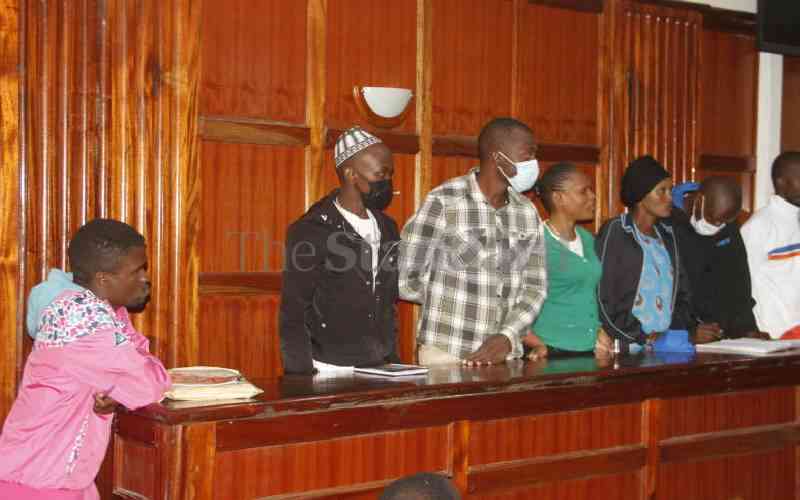×
The Standard e-Paper
Stay Informed, Even Offline

Seven suspects linked to the murder of former Kabete MP George Muchai have received an unexpected blow after the court set the judgement date for October 22, 2024.
This come after the suspects, charged with robbery with violence and the murder of Muchai, his aides, and a driver, declined to tender their defence once again.







